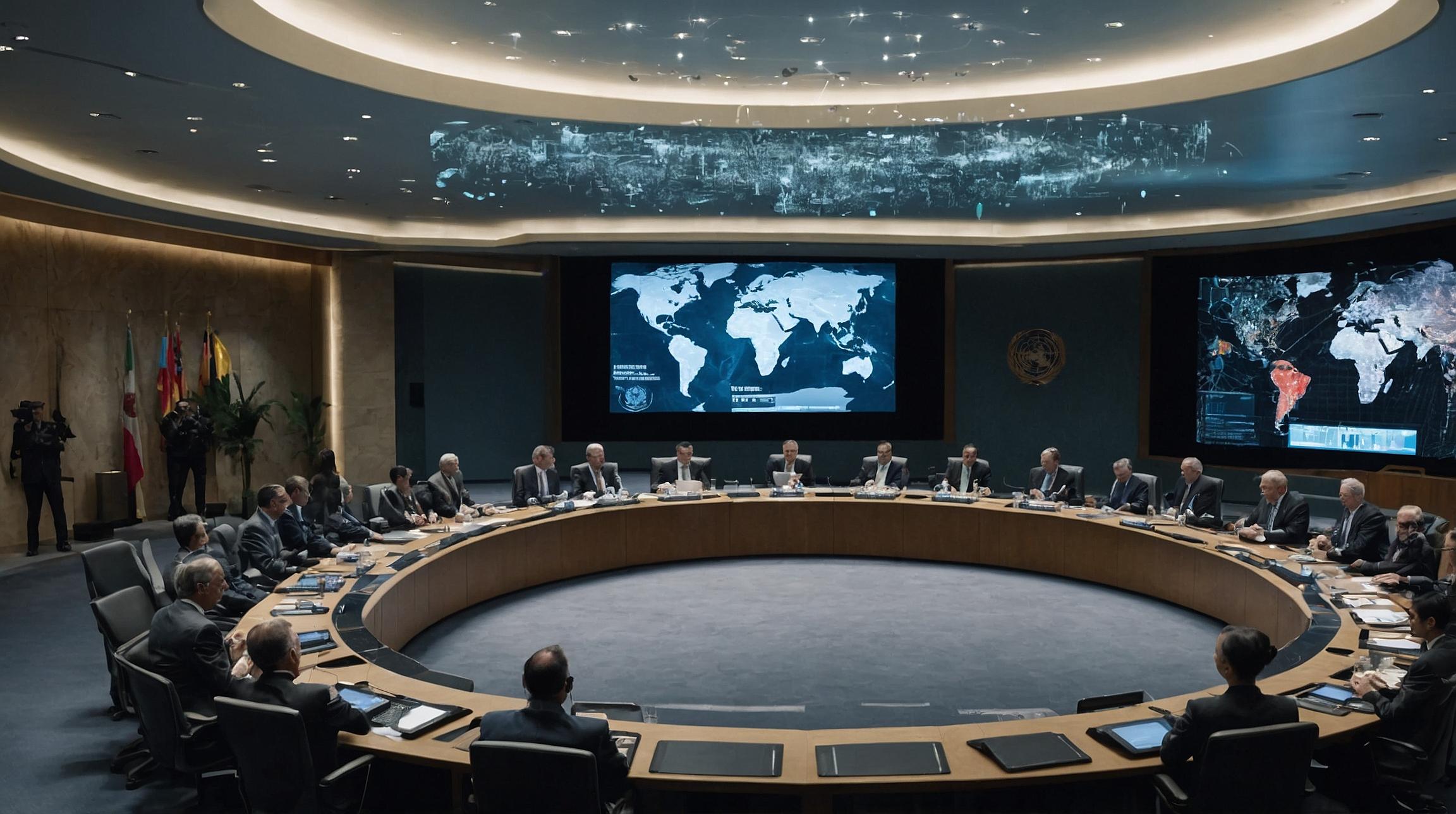Strengthening Global Cyber Resilience Through UN Security Council Initiatives
From cyber operations targeting critical infrastructure to the spread of cybercrime and the use of social media to incite violence, the growing use of information and communication technologies (ICTs) in modern conflicts presents significant international security risks. The misuse of ICTs can escalate tensions, erode trust, and undermine peace efforts, affecting both the targeted nation and the global community.
The United Nations Security Council (UNSC) plays a crucial role in maintaining international peace and security and has been increasingly focusing on cyber and digital security issues. Past efforts have included formal meetings on cybersecurity and technology, which have proven beneficial, and the momentum in 2024 is growing.
Cyber Security: An International Peace and Security Priority
Cybersecurity doesn't exist in isolation; it impacts the global community due to the interconnected nature of the digital world. Key issues include:
National Security Strategies: Many states are integrating cybersecurity into their national defense strategies, raising questions about international law's applicability to cyberspace.
Hybrid Warfare Tactics: Cyber operations are part of hybrid warfare, used by over thirty countries with developed offensive capabilities.
Critical Infrastructure Attacks: Cyber operations targeting vital systems like power grids and water supplies pose significant threats to national security.
Impact on Democratic Processes: Malicious cyber activities target government institutions, influencing public opinion and election integrity.
Non-State Actor Threats: Terrorists and criminal groups increasingly use ICTs for asymmetric attacks.
Human Rights Concerns: Surveillance software and privacy infringements due to ICT misuse are well-documented, impacting marginalized communities.
History of Cyber in the UN Security Council
Since 2016, the UNSC has held several informal meetings on cyber peace and security. Discussions have focused on cybersecurity's implications for critical infrastructure, hybrid warfare, and emerging technologies like AI.
IN FOCUS: The Links Between Cyber, Peacekeeping, and International Peace and Security
The International Peace Institute (IPI) highlights the unique cyber threat profile of UN peace missions. Sensitive data collected by peace operations is increasingly valuable to hostile actors, posing operational and ethical challenges.
Leveling Up UNSC Efforts for Cyber Resilience
Information-Sharing and Awareness-Raising Activities
The Stimson Center emphasizes the need for regular information sharing on cyber threats. Considerations include annual discussions on the cyber threat landscape and the impact of technologies like AI.
Reaffirming the Framework for Responsible Behavior
UN stakeholders stress the importance of reinforcing the UN Framework of Responsible Behavior in Cyberspace. This framework includes international law applicability and voluntary peace-time norms for state behavior.
Integration and Mainstreaming
Integrating cyber concerns into existing UNSC mandates can improve accountability. This includes addressing cyber threats in connection with sanctions evasion, nonproliferation, and civilian protection.
Investigation and Response
The potential for UNSC to investigate and respond to cyber incidents is being considered, similar to its responses to conventional threats.
IN FOCUS: Sanctions Evasion Impacts International Peace and Security
The Bangladesh Bank heist is an example of how cyber operations can support sanctioned nations' illicit activities, posing challenges to international security frameworks.
What Can We Learn From Other Issues?
The UNSC's approach to climate-related issues can inform cybersecurity efforts due to similar transnational and evolving nature of threats.
In conclusion, strengthening UNSC initiatives in cyber resilience is crucial for global security. By addressing these challenges, the UNSC can play a pivotal role in maintaining international peace and security.













